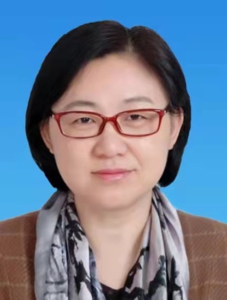Views
The Justice Initiative Frankfurt am Main 2017
Written by Prof. Dr. Dres. h.c. Burkhard Hess, Executive Director Max Planck Institute Luxembourg for Procedural Law
Against the backdrop of Brexit, an initiative has been launched to strengthen Frankfurt as a hot spot for commercial litigation in the European Judicial Area. On March 30, 2017, the Minister of Justice of the Federal State Hessen, Ms Kühne-Hörmann, organized a conference at which the Justice Initiative was presented. More than 120 stakeholders (lawyers, judges, businesses) attended the conference. The original paper was elaborated by Professors Burkhard Hess (Luxembourg), Thomas Pfeiffer (Heidelberg), Christian Duve (Heidelberg) and Roman Poseck (President of the Frankfurt Court of Appeal). Here, we are pleased to provide an English translation of the position paper with some additional information on German procedural law for an international audience. The proposal has, as a matter of principle, been endorsed by the Minister of Justice. Its proposals are now being discussed and shall be implemented in the next months to come. The paper reads as follows: Read more
Paris, the Jurisdiction of Choice?
 On January 17th, the President of the Paris Commercial Court (Tribunal de commerce) inaugurated a new international division.
On January 17th, the President of the Paris Commercial Court (Tribunal de commerce) inaugurated a new international division.
The new division, which is in fact the 3rd division of the court (3ème Chambre), is to be staffed with nine judges who speak foreign languages, and will therefore be able to assess evidence written in a foreign language. For now, the languages will be English, German and Spanish, as one juge speaking Spanish and two speaking German are currently on the court.
In an interview to the Fondation de droit continental (Civil law initiative), the President of the Court explained that the point was to make French justice more competitive and attract international cases. It also made clear that France was following Germany’s lead, where several international divisions were established in 2009 in Hamburg and Cologne.
French Commercial Courts
It should be pointed out to readers unfamiliar with the French legal system that French commercial courts are not staffed with professional judges, but with members of the business community working part-time at the court (and for free). In Paris, however, many of these judges work in the legal department of their company, and are thus fine lawyers.
Also, French commercial courts (and French civil courts generally) virtually never hear witnesses, so the issue of the language in which they may address the court does not arise.
Some issues
So, the new international division will be able to read documents in several foreign languages. However, nothing suggests that parties or lawyers will be able either to speak, or to write pleadings, in any other language than French. Lawyers arguing these cases will still need to file their pleadings in French, and thus to translate them in English beforehand for their clients. Furthermore, the interview of the Court’s President seems to suggest that using a foreign language will not be a right for the parties. Quite to the contrary, it seems that it will not be possible if one of the parties disagrees, and demands documents be translated in French.
Will that be enough to attract additional commercial cases to Paris?
I wonder whether introducing class actions in French civil procedure would have been more efficient in this respect.
For the full interview of the Court’s President, see after the jump.
News
Summer school on Consumer’s Rights and Market Regulation in the EU invites applicants
We can feel it in the air but also in the incoming announcements – the summer is approaching. One of the great ways to spend a part of it is at a summer school. The University of Uidne (Italy) is the host to the 16th edition of the summer school Consumer’s Rights and Market Regulation in the European Union, to be held on 12-21 July 2023.
The programme addresses aspects of legal protection of consumers and market regulation, including the private international law topics, and a moot court. The full schedule is available here. The course accepts undergraduate students, graduates (who graduated no more than five years ago), PhD students from faculties of law, economics, political science or international relations., and limited amount of posts are available on the academic qualifications bases. The early bird is until 30 April 12:00 pm GMT, and the enrollment closes on 31 May 12:00 pm GMT. For details, please consult the Call for applications Udine Summer School 2023.
The summer school is organised within the Jean Monnet Module “CoRiMaR” (Consumer’s Rights and Market Regulation in the European Union) by the Department of Legal Sciences of the University of Udine (Italy), together with a consortium of European universities including University of Essex (UK), De Montfort University (UK), Universitatea de Vest din Timisoara (Romania), East Anglia University (UK), University of Belgrade (Serbia), University of Rijeka (Croatia) and University of Szeged (Hungary).
Eulogy for Professor GUO Yujun
Written by Yan WANG, Huaqiao University

It was with great sadness that we received word from her family that Professor GUO Yujun passed away at 1:50 am GMT+8 on 22 April 2023, at the age of 59.
Professor GUO was a distinguished professor of private international law, art law, and cultural heritage law at the Wuhan University International Law Institute in China. She is the Vice-President and Secretary-General of China Society of Private International Law. During her 30 years at Wuhan University, she taught and mentored hundreds of students, inspiring many of them to work under her supervision from the undergraduate to doctoral level.
She published more than 100 academic articles and works in Chinese, English and Japanese with a wide range of domestic and international influence. She had been to Hokkaido University Law Faculty as a Japanese Government (MEXT) Scholarship student from the October 1991 to April 1993. During her academic career, she went to Harvard University, Osnabrück University, and Max Planck Institute for Comparative and International Private Law as a visiting scholar.
Professor GUO earned the affection from her family, friends, colleagues, and students. A list of her representative private international law publications can be found here.
One Small Step Forward: The Mainland China Is Trying to Differentiate Inter-regional Private Cases From Those Foreign-related Ones
For quite a long time, what China had been doing for its interregional private laws was modelling their solutions on international conventions such as the Hague Service Convention, the Hague Evidence Convention and the Hague Judgments Convention etc. Normally they eventually got a slimmed-down Arrangement for the corresponding matter. This was quite different from what happed in the EU where the enhanced versions of the Hague Conventions could be seen and something extra could even be achieved. Also different from the EU where the ECJ could give answers when many questions at national law level were elevated and tested in the context of Regulations at the EU level, there has been no common court for interregional instruments within China so far. Apart from those bilateral Arrangements, all regions within China are basically treating one another as a ‘foreign country’ in terms of private laws.
The situation is, however, changing, at least from the Mainland side. Yesterday, I was invited to attend a conference which was under the support of the Supreme People’s Court of PRC and organized by the High Court of Guangdong Province that is geographically the closest one to Hong Kong and Macau. The purpose of the conference was to read the Draft Interpretation prepared by a research team of the Guangdong High Court and to be formally adopted and issued by the Supreme People’s Court later on. This Draft Interpretation is, again, an unilateral act of the Mainland China who wants to better its civil procedural rules regarding cases related to Hong Kong and Macau (possibly also Taiwan included). Indeed, different from the past experience for the past decades where inter-regional private cases were generally handled in analogy with foreign-related ones, the Mainland China is now trying to differentiate them. It wants to have more advanced and enhanced rules for interregional private cases. Keep an eye on the development of Chinese interregional private laws ……



